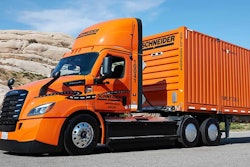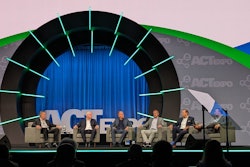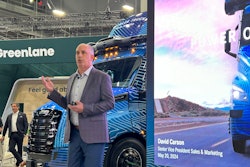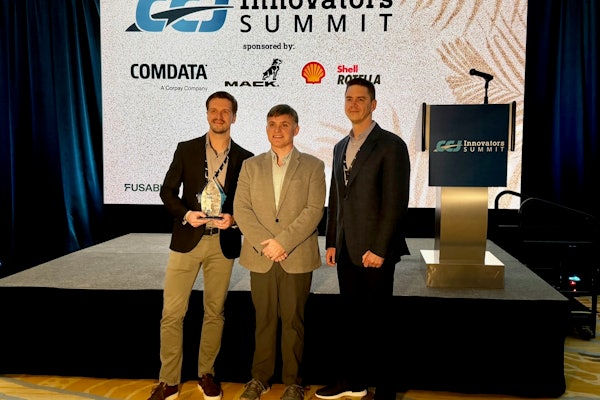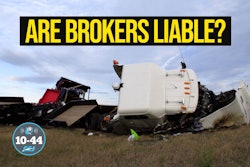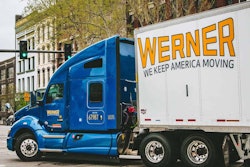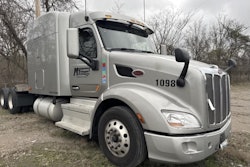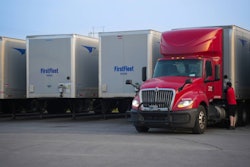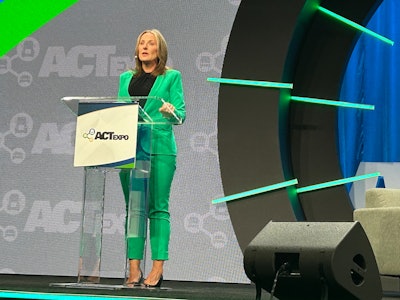
J.B. Hunt Transport Services (CCJ Top 250, No. 3) has an aggressive air quality goal: reducing carbon emission intensity 32% by 2034. At the Advanced Clean Transportation (ACT) Expo in Las Vegas this week, President Shelley Simpson said her company is halfway there, just as the industry is "up against rigid (regulatory) deadlines," adding that the evolutionary-level pressure to reduce trucking's carbon footprint “is not really a bad thing.”
“The reason we’re feeling the tension is because of some misalignment of sustainable technology policies to regulate emissions and an economic case for creating emerging technology," she said.
The misalignment Simpson refers to are California Air Resources Board (CARB) and Environmental Protection Agency (EPA) regulations, which create a regulatory patchwork for companies that do business in upwards of 16 states.
“CARB’s ACT rule began in 2024 while EPA Phase 3 starts with 2027 model year trucks,” she said, adding that each rule phases in, allowing more time for the technology to mature, which is good, "but as state and federal requirements do not align, it does create issues with interstate operations and commerce.”
"It's already very costly to operate in California," she said, "making the economic case to do business in the state unbalanced."
If J.B. Hunt converted its entire fleet to battery electric, Simpson said it would need the electricity equivalent of 1.4 million homes to power the fleet. She further noted that given an upfront cost three-times higher than diesel, and that more electric trucks are needed to move the same amount of freight, 100% battery electric trucks "are not economically viable right now" at scale. "We're watching this technology closely with the expectation they will mature to make a economic case."
Where J.B. Hunt has found the most green energy traction is at the rail yard. J.B. Hunt Transport Services and intermodal rail provider Burlington Northern Santa Fe (BNSF) Railway jointly rolled out last year an intermodal service to transport service-sensitive highway freight via rail, potentially removing millions of loads from the highway.
"Conversion to rail reduces shipment emissions 65%," she said, adding intermodal is one of the most economical alternatives for J.B. Hunt customers while still offering significant reduction of CO2 emissions when compared to on-highway transport. For anyone questioning where intermodal lies in the J.B. Hunt green hierarchy, the carrier earlier this year acquired Walmart’s intermodal assets, including Walmart’s operational intermodal container and chassis fleets.
Simpson emphasizes that the company, too, is working to decarbonize its expansive diesel fleet, adding that 24% of all fuel purchased is either a bio-blend or renewable diesel. The carrier also seeks to keep its fleet fresh with new trucks equipped with the newest and most efficient technologies. She said the carrier's average truck age is 2.23 years versus a 5.5 years industry average.
Simpson said J.B. Hunt does feel pressure from shippers to green-up their freight, adding "we have a lot of customers interested in moving their freight sustainably." But, she said customers are often surprised about the carbon intensity relative of the cost of providing solutions.
The motor carrier has created a number of tools, like a Carbon Calculator and Carbon Diet best practice guide, to help shippers align the impact their freight has on climate change with their goals, giving shippers, Simpson said, some financial skin in the game when it comes to helping fund the effort.
Launched in 2022, the CLEAN Transport program also provides customers with an easy and flexible method to acquire carbon offset credits equivalent to the emissions created by their shipments. However, Simpson noted not a single customer has signed up to the program due to cost.


